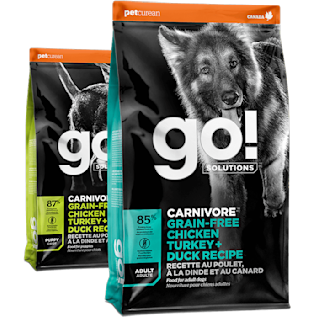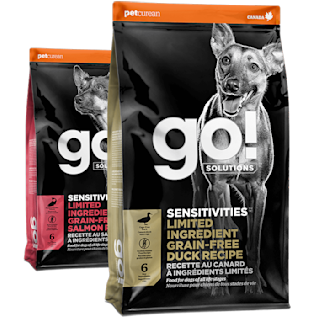February 2, 2021
How Much Protein Does My Dog Need?

What is Protein?
Proteins are the building blocks of your dog’s body and consist of chains of amino acids. They can range in size from only a few amino acids to large, complex molecules. Protein levels in dog foods have been slowly creeping up over the years, but how much protein does my dog need, really?
Protein Requirements
Protein requirements vary depending on species and life stage. Puppies have higher requirements than adult dogs because the additional protein is necessary for new tissue development.
How Much Protein is in Dog Food?
According to the Association of American Feed Control Officials (AAFCO), adult dogs and puppies require a minimum of 18% and 22.5% protein on a dry matter basis, respectively, while ensuring that all essential amino acid requirements are met. The essential amino acids are those that your dog cannot make on its own, so they must be obtained from food.

Recommended Solution
Protein-Packed, Premium Dog Food Recipes
Indulge your dog's carnivorous instincts with our Go! Carnivore meat-based dog food recipes. Specially designed for high-energy canines with an assortment of premium animal proteins for a healthful, hearty meal.
View Carnivore dog food
Dietary Protein Sources
The amount of dietary protein your dog requires also depends on lifestyle and health conditions. Higher protein levels may be needed in some circumstances, such as high-performance dogs or critically ill patients.
For these dogs, we offer Go! Solutions Carnivore recipes which are available in a range of different protein options and contain up to 87% of protein from animal protein sources in our kibble recipes, and up to 97% in our Tetra Pak carton wet food recipes.

However, high protein diets may not be suitable for all dogs. In fact, excess dietary protein cannot be stored by the body. Rather, the nitrogen in protein is converted to urea and excreted in the urine, which is a wasteful end to a costly ingredient and contributes to harmful environmental ammonia levels (as well as those brown patches in your lawn!). For most dogs, a more moderate protein level is recommended.
Lastly, some dogs may experience adverse reactions to some of the proteins that are commonly used in dog foods. If your dog experiences itchy skin, diarrhea, or recurrent ear infections, a limited ingredient diet may help reduce these symptoms.

Recommended Solution
Limited Ingredient Dog Food Made by Pet Nutrition Experts
These grain-free, gluten-free, and chicken-free recipes limit contact with common food allergens — providing all the nutrition your dog needs using as few key ingredients as possible.
View Sensitivities dog food
Good sources of protein that are commonly used in dog foods fall into three main categories: meals (e.g. chicken meal, lamb meal), fresh meat/fish/poultry (e.g. de-boned turkey, de-boned venison, de-boned salmon) and plant-based proteins (e.g. pea protein).
When foods containing protein are eaten, the protein is broken down into amino acids which are then absorbed and used to make body proteins. However, not all proteins are created equal. A highly digestible protein source that contains greater amounts of essential amino acids is considered a high-quality protein.
Some proteins contain low levels of one or more essential amino acids, referred to as the limiting amino acid, usually methionine, lysine or tryptophan. However, foods can easily be combined to provide the correct balance of all essential amino acids. These foods have what are called “complementary proteins”.
In Conclusion
Protein is a vital component in your dog’s food and provides the essential amino acids to help keep your pet strong and healthy. Whether your dog needs a diet that is high in protein, moderate in protein, or contains a novel protein, you can be sure you're feeding a recipe with premium proteins to meet your dog’s dietary needs.


